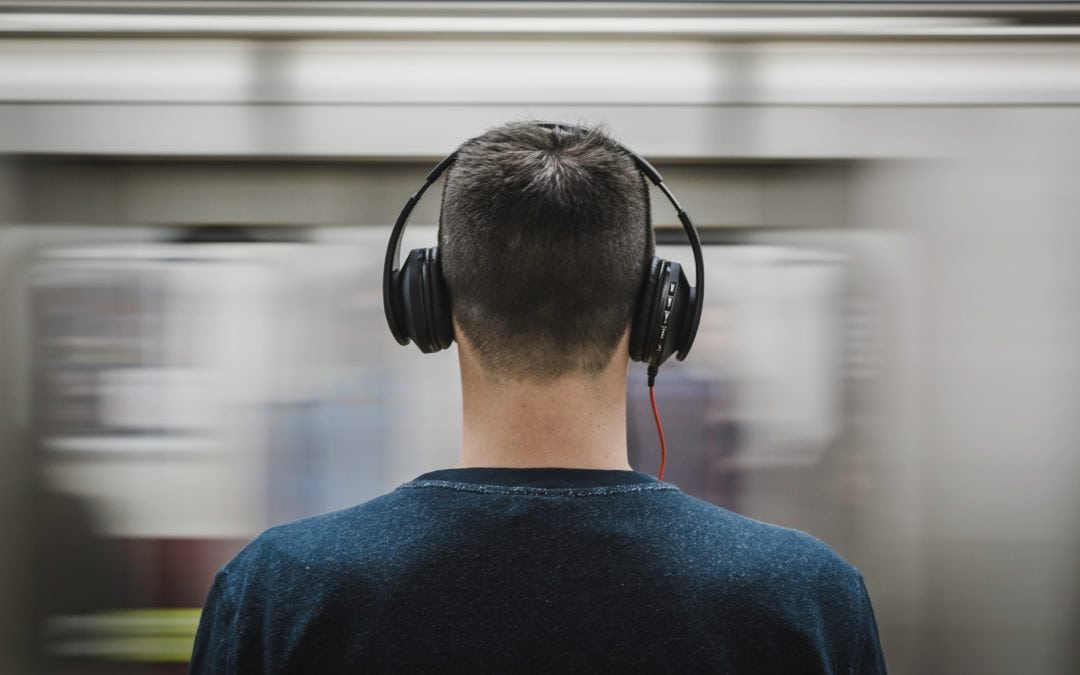Everyone knows excessive noise affects our hearing. But what other damage does noise inflict? Noise is defined as any unwanted sound. But that definition doesn’t really do justice to the word ‘unwanted.’
Unwanted noise is more than just an irritant. In fact, it’s likely the source of many of the common afflictions that are affecting our health and well-being. It’s all around us, each and every day, and the pain it is inflicting on our lives is adding up.
The “Canary in the Coal Mine” Won’t Protect You
Noise surrounds and assaults us daily. Traffic, construction, aircraft, subways, sirens, lawn equipment and leaf blowers, car alarms, air conditioners and the “beep-beep” sounds emanating from delivery vehicles backing up are just some of the usual suspects.
But what you may not know is that this noise may be doing damage to both your mental and physical well-being long before it affects your hearing. The truth is that noise damages our hearing starting at 85dBA, increases anxiety at 55dBA, and will affect the quality of your sleep at 35dBA.
To put that into perspective, there is an abundant of noises sources that we come into contact daily produce sound levels we may consider routine but are impacting our health. For example, a vacuum cleaner (74 db), busy street corner (70 db), and air conditioning unit (60 db), all produce unwanted noise that can create a host of health issues.
Noise certainly damages our hearing, but even relatively low levels of environmental noise exposure can cause a wide array of health concerns, including stress, fatigue, anxiety, depression, high blood pressure, sleep deprivation, anger, and elevated risks for mental illness and drug/alcohol abuse.
You can’t afford to wait until noise is at risk of damaging your hearing because it will create issues for you long before that occurs.
It’s a Fact
A German study in 2016 showed depression and anxiety increases as the annoyance from noise increases. And in New York City, noise is the most common complaint to the NYC Quality of Life hotline. But some of the most compelling research on noise, and how it impacts our health and well-being was done right here in Toronto.
Dr. Vincent Lin of Sunnybrook Hospital studied noise levels in and around the city of Toronto in 2017.
“We measured lots of decibel levels on the subway, buses, and streetcars and found that at peak values, the amount of noise could be quite loud and repeat exposure over the long term could damage your hearing.”
Dr. Lin is concerned with the screeches, squeals, and clangs on subways producing peak noise levels which can be as high as 115dB to 120dB suggesting that commuters on public transit, subways, buses, streetcars, may be at risk for noise-induced hearing loss. Dr. Lin noted that waiting on the subway platform, with trains passing, mostly in the older stations along the Bloor line have the highest dB levels.
Even cyclists, drivers, and walkers in the city core are vulnerable to noise-induced hearing loss due to traffic, construction, and crowds. But it’s just not hearing loss that concern Dr. Lin.
“We now are starting to understand that chronic excessive noise exposure leads to significant systemic pathologies, such as depression, anxiety, increased risk of chronic diseases and increased accident risk. Short, intense noise exposure has been demonstrated to be as injurious as longer, less intense noise exposure.”
What You Can Do – Every Decibel Drop Matters
It’s not an overstatement to say the quality of your life, and your health and well-being, hang in the balance. You need to act to reduce noise in your life. Thankfully, with some effort and planning, you can reduce the damaging effects of noise or your auditory and non-auditory health.
Listen to your Noise
- Be aware of the environmental noise in your neighbourhood, community, and city
- Challenge your city to reduce environmental noise
- Join or start a local guide to community noise levels and regulations
- Look, listen and get involved with local events and awareness campaigns. The Canadian Hearing Society has designated May as Speech and Hearing Awareness Month
Reduce Your Noise
- Buy quiet – consider noise levels on household appliances, lawn equipment, and vehicles
- Consider battery and electric alternatives to gas-powered devices
- Be aware of low or reduced-noise options on the products you buy. For example, there are ‘beeper free’ white-noise backup systems available for vehicles. They are mandatory on New York City construction sites
- Consider if you are causing noise to your neighbours or community, and take corrective action
- Carefully consider where you install outside air conditioners
- Plan your outdoor activities, like lawn care and construction projects, to minimize the effect of noise pollution on your neighbours and community
Protect Yourself and Your Family
- Consider using noise-reducing material throughout your home, including windows, insulation, carpeting and mats
- Install a living or green wall; self-sufficient vertical gardens that are attached to the exterior or interior of a building
- Wear hearing protection at noisy events, like sports or concerts. Always carry a set of simple, mobile earbuds that can quickly and easily create a barrier between you and environmental noise
- Complete an annual hearing screening to monitor your hearing levels
- Take regular, and extended, breaks from noise for both your hearing and stress
Karen Vye contributed to this post. Karen is a Hearing Conservation Program Consultant with Workplace Medical Corporation.
